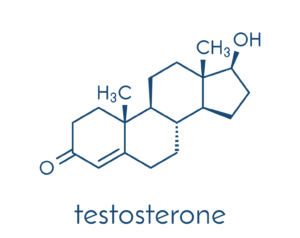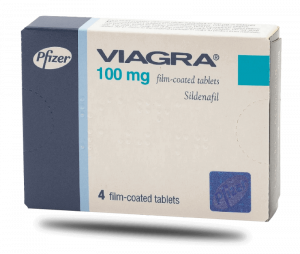Why Does Erectile Dysfunction Start?
Erectile dysfunction, commonly referred to as ED or impotence, is the inability to achieve and sustain an erection sufficient for satisfactory sexual intercourse. Erectile dysfunction is a condition where man finds it persistently hard to achieve a satisfactory erection and it interferes with sexual performance. In a normal body mechanism, usually during arousal blood flushes to the groin area and fills up the penis, as a result, an erection is achieved.
When men become sexually aroused, hormones, muscles, nerves, and blood vessels all work with one another to create an erection. Nerve signals, sent from the brain to the penis, stimulate muscles to relax. This, in turn, allows blood to flow to the tissue in the penis. Once the blood fills the penis and an erection is achieved, the blood vessels to the penis close off so that the erection is maintained. Following sexual arousal, the veins to the penis again open up, allowing the blood to leave 2.
This complex but normal body mechanism is controlled by a network of blood vessels and nerves. But for various reasons men, all of a sudden fail to achieve this erection and as a result erectile dysfunction happens. Impotence is broadly categorised into two classes.
Primary erectile dysfunction or Organic impotence
Secondary erectile dysfunction or Psychogenic impotence
Let’s see these classes in detail and get to the root of the problem!
Click HERE to View Viagra Prices > >
Organic Impotence
Organic impotence or primary impotence is referred to as erectile dysfunction that is more physical in nature. To put it in simple words it means that it is a dysfunction caused by physical changes in the body. Erection happens naturally when the blood flows to the penis during sexual arousal. If due to a restriction of these blood vessels the blood doesn’t reach the groin area then the dysfunction that happens is referred to as organic in nature. But problems in blood circulation is just one reason of primary erectile dysfunction. There are many other physical conditions and diseases that can cause or aggravate the condition. Let’s explore in detail the physical conditions that can result in E.D.
Physical conditions that cause erectile dysfunction;
Decreased blood supply to the penis:
As we have already seen before for an erection to occur, a series of neurochemical events take place in the male body. The body’s strongest sexual organ is said to be the brain, so the first event is stimulation of brain that releases certain chemicals and this is usually controlled by sexual drive or libido. These chemical signals the blood vessels around the groin area and blood is supplied to the penis, as a result, it enlarges in size and erection occurs followed by an orgasm. Disturbance in any of the above events can lead to problems in erections. These disturbances can be of blood supply, nerves or other psychological related issues.
A decreased blood flow to the groin will affect the quality of erections and may cause weaker erections. Some of the reasons behind a decreased blood flow can be;
- Smoking
- Alcohol
- Obesity, an increased weight and fat content in the body will decrease blood circulation
- Sedentary lifestyle, inactivity is like new smoking of this era. It is also considered a fourth risk factor that contributes to mortality rates all over the world.
- Tumour, a tumour in the groin area can also cause dysfunction.
- Cycling (if cycling is done more than three hours in a day)
- Prostate cancer
Hormonal issues:
Low testosterone:
 Testosterone is the main hormone responsible for all the sexual activity and characteristics in men. Low testosterone in males can result in low libido that in turn result in a lack of erection. A hormonal imbalance in the body such as low testosterone and high prolactin combined with abnormal thyroid levels can cause E.D.
Testosterone is the main hormone responsible for all the sexual activity and characteristics in men. Low testosterone in males can result in low libido that in turn result in a lack of erection. A hormonal imbalance in the body such as low testosterone and high prolactin combined with abnormal thyroid levels can cause E.D.
Testosterone is the main hormone in the male body responsible for erections. It is the hormone that gives men their libido and they feel that bust of youthfulness and vitality. Erectile dysfunction most of the times is a sign that testosterone levels in the body are not at their healthy levels. A healthy level of testosterone in the body is indicated by morning erections. If a man is getting morning erections at the time he wakes up from sleep then that means that his testosterone levels are at an optimal level 6.
Nowadays an average male of 40 years has testosterone levels in his body that a 70 years old man had approx. 50 years ago.
Testosterone in modern day’s man is decreasing and the reason being is the Xeno-estrogens that we are exposed to. Estrogens are present in pesticides sprayed on food, in the water that we drink, in the plastic containers that we eat in. Our environment is full of estrogens.
A hormonal imbalance in male’s body happens when the body is exposed to a lot of estrogens. This results in a rise in estrogen hormone in the male body, this signals the brain to stop making testosterone, low testosterone level results in higher estrogen, high estrogen stores fat in the belly ( fat is always stored in belly in men), this produces high amounts of free radicles that damage veins, and puts men to a risk of heart attacks.
Now a question may arise, what to do about it? How to boost testosterone levels?
Well, my honest suggestion would be to never take hormones from outside source, the male body is designed to make hormones and not take it from outside. Hormones from outside work for some time and then the body stops responding to them. There are certain testosterone boosting diets and herbs that can be taken. They are free of side effects as well. Adding essential minerals to your diet like zinc, selenium, chromium also helps to relieve the condition.
Parkinson’s disease:
Although Parkinson’s disease is not characterized as a hormonal disorder, it is a neurological disorder. It is a movement disorder and usually worsens over a period of time. We are mentioning it here because Dopamine is a hormone responsible for Parkinson’s disease. There is a correlation between three hormones in a male’s body. Prolactin, testosterone and dopamine.
Usually, when the testosterone levels are low, prolactin levels are increased and when prolactin is increased as a result dopamine is decreased. And decreased dopamine causes Parkinson’s.
Although not a direct link usually patients that have Parkinson’s disease also complain about erectile dysfunction because they have low testosterone in their body coupled with other motor dysfunctions and the GP makes sure that he manages the condition for the patient.
CardioVascular ( CVS) Disease:
Our cardiovascular system is made up of heart, arteries and veins of the body. We know that a plane cannot take off without a fully functioning engine. The heart is like an engine too and if it’s not working at an optimized level it can result in E.D. Sometimes a sexual dysfunction is actually due to an underlying heart disease. As our heart controls the blood supply to the whole body, therefore, any issue with blood supply can result in nil or minimum erection.
Blood capillaries that supply blood to the penis are very miniscule in size. Any damage to them or decreased blood flow to this area can, unfortunately, result in a permanent impotence.
Atherosclerosis:
Atherosclerosis is a condition in which cholesterol deposits into the arteries and results in narrowing of the arteries. This narrowing of blood vessels is called as endothelial dysfunction and it is the first stage of atherosclerosis. The cholesterol forms a plague within the arteries and narrows them thereby stopping the blood flow completely and causing heart attacks.
Endothelial dysfunction prevents the blood vessels from dilating properly as a result blood flow is slowed down or blocked depending upon the condition. When the blood vessels that supply the penis are not able to dilate during sexual stimulation because of endothelial dysfunction, the penis cannot fill with blood, and the man develops erectile dysfunction. As atherosclerosis progresses, plaques build up in blood vessels and blood flow is slowed, further worsening erectile function7.
Atherosclerosis can affect different vital organs of the body. The affected organ depends upon the person, his age, and how much the condition has been progressed/worsened. But it is often seen that it affects penis first, the brain and heart and legs are often affected at the last. Erectile dysfunction, in this case, is like a warning sign that this person is predisposed to a heart attack or stroke in a few years of time. This warning sign can be a good thing if it alerts the doctor, and he can diagnose the underlying endothelial dysfunction, and as a result, a heart attack or stroke can be prevented in long run.
Hypertension:
Hypertension causes changes in the endothelial layer of the blood vessels and causes them to lose their elasticity. Due to chronic high B.P., the blood vessels harden. As the blood vessels harden and lose their elasticity it gets difficult for them to dilate and as a result blood flow is slowed down. This slowed blood supply to the penis sometimes causes erectile dysfunction. Hypertension may affect the veins, allowing the blood that rushes into the penis to exit quickly. The effects of hypertension on erectile function are cumulative over time and may occur even before a man knows he has hypertension.
Some anti-hypertensive medicines can also cause erectile dysfunction. Medications like Diuretics (water tablets) and beta blockers can cause this problem but it usually doesn’t happen to everyone. If you are taking any of these medications and are worried about erectile dysfunction consult your GP and he may be able to make changes to your medication.

Diabetes:
Diabetes is a condition in which the blood glucose (sugar) levels become too high. The glucose doesn’t get metabolised (reach the cells for breakdown) and starts accumulating in the blood. Insulin is a hormone produced by the pancreases, is necessary to take the glucose to the cells for a breakdown. It acts as a transporter. If sufficient insulin is not produced within the body then sugar start accumulating in the blood and causes diabetes.
Diabetes has many complications in the body. We won’t discuss it in detail but the most common complication is Neuropathy. Neuropathy, in simple words, can be defined as damage to the nerves. Over a long period of time diabetes cause a lot of damage to the nerves of hands, feet and in other parts of the body. Neuropathy can also affect the penis and as a result erectile dysfunction happens.
A scientific study shows that erectile dysfunction is more associated with atherosclerosis and could be used as an indicator of heart or brain disease (coronary or cerebrovascular disease).
Diabetes is often referred to as a disease due to lifestyle. Obesity and a sedentary lifestyle are the main cause of diabetes. According to a recent research, obesity is termed as the fourth cause of mortality worldwide after smoking. It also puts the body at high risk of cancer.
Neurological disorders:
Although to study all the neurological disorders in depth is out of the scope of this article but generally neurological disorders cause erectile dysfunction by weakening the nerves that carry out motor activities in the body. Sometimes erectile dysfunction is a manifestation of other conditions happening in the body. Some of the neurological disorders that cause E.D. are;
- Parkinson’s disease
- Multiple sclerosis
- Alzheimer’s disease
- Epilepsy
- Tumours
We have seen Organic/primary impotence and its causes in detail. Let’s now have a quick look at secondary erectile dysfunction.
Psychogenic Impotence
Psychogenic erectile dysfunction is defined as the persistent inability to achieve or maintain an erection satisfactory for sexual performance owing predominantly or exclusively to psychologic or interpersonal factors.11. ED due to psychological factors is referred to as psychogenic impotence and is usually due to anxiety, guilt, low self-image etc.
Erectile dysfunction caused by psychological factors is secondary E.D. It is a condition where a man experiences normal sleep and morning erections but is unable to have an erection during intercourse.
It is usually a frequent type of impotence in young men. Usually before the age of 40 sexual dysfunction rarely happens due to high B.P. or cholesterol or obesity etc. The effect of these factors usually takes longer to affect the blood vessels and blood flow in the body consequently decreasing the sexual function. Let’s see the factors that can cause this transient and sporadic E.D.
Depression / Anxiety:
Depression, anxiety and stress can manifest itself in different forms. Unlike anxiety and stress, depression is in itself a condition that requires medication and treatment. The secondary manifestation of depression can show itself as a low libido, lack of sexual pleasure, and in turn an inability to have sex.
Similarly stresses at work, job, and relationships can affect brain sections that deal with pleasure and arousal. When the brain is dealing with stress or is in a state of chronic stress it becomes harder to focus on coitus or sex.
Sometimes certain medications for depression can also cause impotence.
In this case, doctors can recommend Behavioural cognitive therapy combined with sex therapy to deal with the problem.
Addictions:
Medication abuse, drug abuse, and even pornography have known to cause secondary erectile dysfunction. Alcohol at low doses is known to cause sexual arousal but indulging in too much alcohol can also cause temporary impotence
Drugs like heroin, ecstasy, cocaine can cause various changes to sexual function from difficulty in achieving an erection to a delayed ejaculation time. These drugs can sometimes even give painful erections. Chronic use of drugs can cause many chemical imbalances in the brain that can, in turn, interfere with sexual activity.
Problems with self-image, guilt, confidence etc.
Too much heavy or strenuous exercise and lack of rest:
This kind of E.D. is usually transient in nature and is more due to low levels of testosterone in the body. When a person indulges in too many heavy forms of exercise or bodybuilding etc., they are basically using up all the stores of testosterone in the body. It is important that a man have at least 30 minutes of rest during the day. This helps up in rebuilding the testosterone stores in the body.
How to distinguish whether a person has Primary or secondary impotence:
There are certain tests that can tell us the cause behind E.D.
Hormone levels:
A simple blood test can tell us the abnormal hormonal imbalance in the body. The doctor can carry out further investigations and proper treatment may be started.
Sleep studies:
An average man at night usually gets erections about three to four times while he is unaware of it. If a man has organic impotence he would not get any erection at all in sleep, while men with psychologically related issues will get erections during their sleep. This test thus provides valuable information to rule out the problem and its solution. This test serves as an important diagnostic tool in the treatment of erectile dysfunction.
Treatment for E.D.
- Oral medication: Viagra, Tadalafil etc.

- Medications injected into the penis
- Hormonal therapy
- Lifestyle changes; quitting a sedentary lifestyle, smoking etc.
- Quitting alcohol
- More exercise
- Proper rest; helps build up testosterone
- Taking essential minerals like zinc, selenium, chromium
Click HERE to View Viagra Prices > >
References:
- https://www.webmd.com/erectile-dysfunction/guide/erectile-dysfunction-basics
- https://www.healthline.com/health/erection-problems#modal-close
- https://www.ncbi.nlm.nih.gov/books/NBK297
- https://urology.med.wayne.edu/impotence-sexual
- https://www.treated.com/erectile-dysfunction/psychological-causes-of-ed
- John Gray, Men’s sexual health. https://www.marsvenus.com/blog/john-gray/erectile-dysfunction-hard-facts-about-the-soft-truth
- http://circ.ahajournals.org/content/123/21/e609
- https://urology.med.wayne.edu, Information on hypertension and impotence
- http://www.bloodpressureuk.org/BloodPressureandyou/Yourbody/Erectiledysfunction
- https://www.nhs.uk/news/heart-and-lungs/erectile-dysfunction-and-diabetes/
- http://www.urologic.theclinics.com/article/S0094-0143(05)70137-3/abstract
- https://www.treated.com/erectile-dysfunction/psychological-causes-of-ed
- https://urology.med.wayne.edu, diagnostic testing on E.D.
Mens Pharmacy is not liable for the currency or accuracy of the information contained in this blog post. For specific information about your personal medical condition, please contact our doctors or pharmacists for advice on [email protected].

